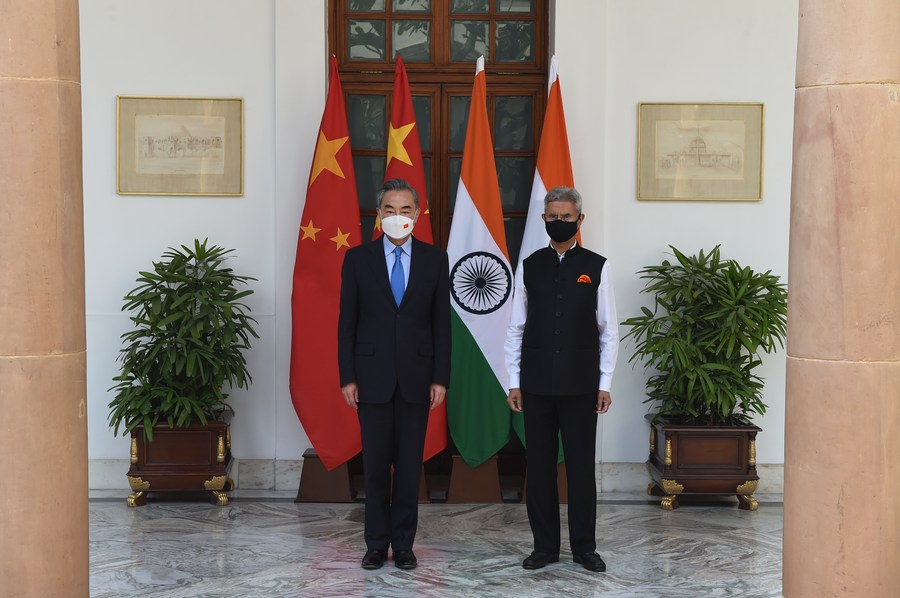Positive signs in China-India talks
By APARAJIT CHAKRABORTY in New Delhi and XU WEIWEI in Hong Kong | China Daily | Updated: 2022-03-28 09:07

Border issue and stranded students raised in first meeting since clashes
For Indian professor Karori Singh, the face-to-face discussions of Indian and Chinese foreign ministers once again show that two of the oldest civilizations are shouldering global responsibility to peace and prosperity.
In New Delhi on Friday Indian External Affairs Minister Subrahmanyam Jaishankar and visiting State Councilor and Foreign Minister Wang Yi called for diplomacy and dialogue to end the Ukraine crisis.
Singh, former director of the South Asia Studies Centre at the University of Rajasthan, said the ministerial level talk enhances their evolving common approach and collaboration on global issues for shaping the emerging world order and world peace.
Briefing the media after the talks, Jaishankar said: "On Ukraine we discussed our respective approaches and perspective but agreed that diplomacy and dialogue must be the priority."
Both countries emphasized the importance of a cease-fire in Ukraine. The two have adopted a similar stance on the Russia-Ukraine conflict over the past month, including at the United Nations.
Wang also met Indian National Security Adviser Ajit Doval on Friday. It was the first visit by a prominent Chinese official since the Galwan Valley clash of border soldiers in which both sides suffered casualties in June 2020.
The visit was a positive step "as it came after a long time and it was long overdue", said Ritu Agarwal, an associate professor at the Centre for East Asian Studies at Jawaharlal Nehru University in New Delhi.
Joe Thomas Karackattu, faculty in-charge of the China Studies Centre at the Indian Institute of Technology Madras, said the two countries need to renew their "level of trust and sincerity".
The top diplomats have been candid and sincere on maintaining peace along their border as well.
India has stressed the importance of resolving the border standoff on mutually acceptable terms. Wang saw the issue as only part of the whole picture of bilateral relations and encouraged mutual benefits and long-term gains despite differences.
Thousands of Indian and Chinese troops are deployed on their high-altitude border. Earlier, a dozen rounds of talks were held between the senior military officers of the two sides. Both agreed on the importance of early and complete disengagement in remaining areas to take forward bilateral ties.
"A big responsibility of Indian diplomacy, therefore, is to create the widest set of options for such contingencies," Jaishankar said.
"Restoration of peace and tranquillity will help build mutual trust and create enabling environment for progress in relations," Doval was quoted as saying.
Analysts said the border issue should make way for mutual development and help, and they saw the visit as a positive sign.
Issues such as Indian students stranded in China were also discussed. The students' plight was exacerbated by Indian authorities' decisions to block the access of 231 Chinese apps in India since June 2020, citing a threat to India's security. A number of Chinese universities use some blocked apps for online lectures and exchanges.
Wang gave an assurance that issues such as that of the students would be resolved.
Singh said the two countries are expected to contribute to meaningful meetings this year of BRICS, the grouping that also includes Brazil, Russia and South Africa.
Aparajit Chakraborty is a freelance journalist for China Daily.
























